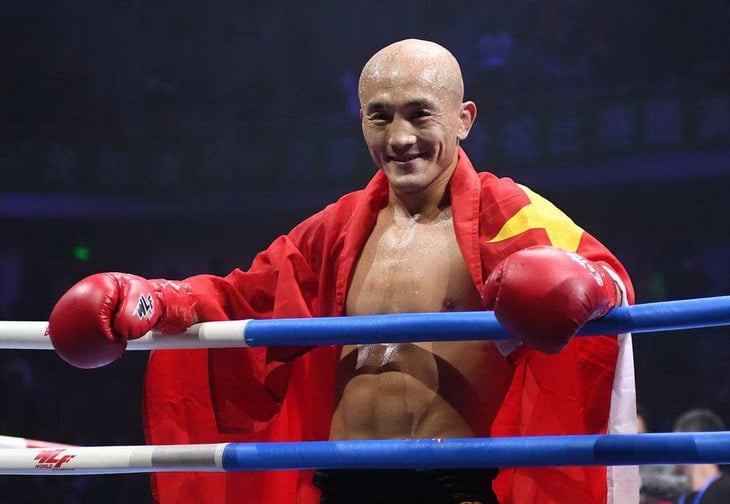
Martial artist Nhat Long, the most famous person in Shaolin Temple, joins MMA - Photo: UFC
From the great writings of Kim Dung, to the thousand-year-old martial arts schools, to the places associated with many legends, kung fu has always been the pride of the Chinese people. In the profound culture of the country of billions of people, martial arts occupies a significant part.
However, when entering modern combat environments such as MMA, kickboxing or professional fighting arenas, kung fu is often doubted about its true value.
So does Chinese kung fu really hold its place in the ring, or has it become more of a performance than a practical legacy?
From culture to practice: a long way to go
Chinese kung fu - or wushu in today's professional sport - is actually a collection of hundreds of traditional martial arts styles developed over many centuries.
Each martial art has its own system of techniques, philosophies, weapons and training methods, associated with different regions such as Shaolin, Wudang, Baji, Xingyi, Wing Chun...
However, entering the 20th century, especially after 1950, China began to "sport" traditional martial arts by forming modern wushu.
This is a state-standardized martial arts system, divided into two main branches: taolu (form performance) and sanda (sparring). But even the only fighting branch, sanshou, is competitive, has rules, limited techniques, and is not similar to martial arts such as muay Thai, Brazilian Jiu-Jitsu, or MMA.
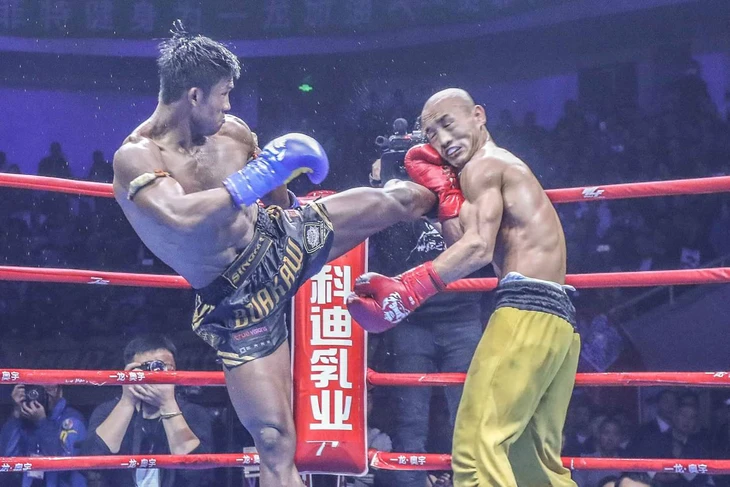
As famous as Nhat Long (right) is, he often fails in MMA - Photo: MTN
“Wushu is beautiful, very culturally rich. But it was not designed for open-ended combat,” says American martial arts expert and former MMA fighter Josh Barnett.
Iconic moves like palm force, tiger stance, dragon stance - which may be useful in ancient environments - are not very effective when you are facing a simple punch from boxing.
Kung fu schools with the highest combat value
Not all kung fu schools lack practical combat.
Among them, the most prominent is Bajiquan, a martial art once used in the guard force of the Republic of China government.
This martial art is famous for its close-quarters fighting style, explosive moves such as elbows, shoulder thrusts, and head strikes. Although rarely seen in the ring due to its lack of popularity, the practical combat principles of Bajiquan - if trained seriously - can adapt well to the modern combat arena.
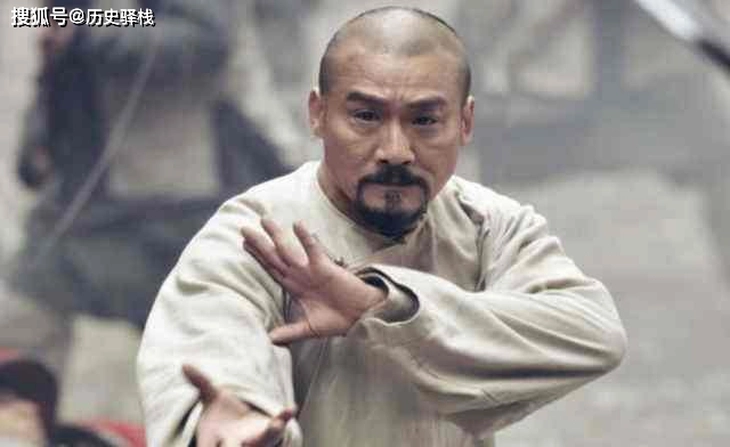
Ly Thu Van, the legend of Bajiquan in movies - Photo: XT
In addition, Xingyi Quan is also highly appreciated for its conciseness in technique and the power of its straight, direct attacks. This is one of the few internal martial arts that can be transformed well if practiced according to a modern system.
Wing Chun - the martial art made famous by Ip Man and Bruce Lee - was once praised as "the martial art of close combat".
However, in the actual ring, pure Wing Chun fighters often lose to those with a boxing, Muay Thai or BJJ background. The main reason lies in the fact that many Wing Chun schools today only practice formal techniques, lacking contact and sparring (practice matches simulating real combat).
“Chi Sao” – Wing Chun’s signature force sensing technique – is interesting in theory. However, it is ineffective against long-range kicks or grappling-style chokes.
Shaolin, once the most prominent name in kung fu, is also heavily influenced by performance. Much of the current system focuses on spectacular techniques, qigong training, and martial arts and music performances, which significantly reduces the fighting element.
Yi Long is considered the top martial artist from Shaolin Temple. But in the MMA ring, he is only average, having suffered 13 defeats in a total of 76 fights.
Modern Wushu: Beautiful but Not for Fighting
In fact, modern wushu was not created to increase combat effectiveness, but to standardize and promote kung fu as part of national culture.
Taolu - performance form - is designed according to sport criteria, similar to gymnastics, and is scored according to difficulty, beauty, and rhythm.
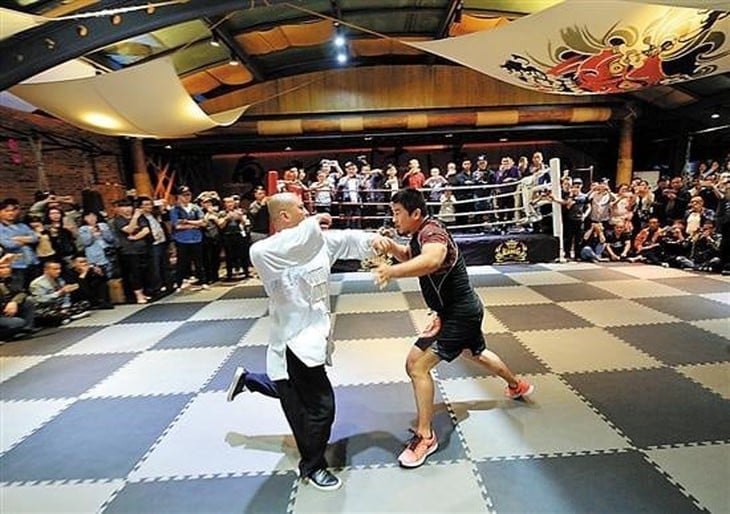
The sad battle between Xu Xiaodong and Wei Lei - representative of Tai Chi - Photo: PA
Even sanda - the only sparring system in wushu - has developed only in limited regional sports competitions.
Some fighters with a background in Sanshou, such as Cung Le (Vietnamese origin) or Zhang Weili (UFC), have achieved high results, but they all had to learn more modern combat sports such as wrestling, boxing, and jiu-jitsu to be able to compete.
Joe Rogan - UFC commentator and Brazilian Jiu-Jitsu black belt - once frankly said: "No one in MMA uses pure kung fu. What is effective has been proven through collision. Kung fu, although beautiful, does not have a serious training system for fighting."
A series of videos of amateur MMA fighters and “kung fu masters” in China have sparked heated debate. Xu Xiaodong alone has a series of knockouts against traditional kung fu masters such as Wei Lei and Tian Feng (Tai Chi).
Xu Xiaodong later declared: “Kung fu is not for fighting. It is a cultural product. But many people have illusions about its power.”
The failures of self-proclaimed “martial arts masters” in just a few dozen seconds have caused strong reactions from the martial arts community in China. While international experts believe that this is a clear proof that traditional martial arts need to be strongly reformed if they want to step off the stage and into the ring.
Source: https://tuoitre.vn/kung-fu-trung-hoa-co-con-gia-tri-tren-vo-dai-20250618100712287.htm


![[Photo] Keep your warehouse safe in all situations](https://vphoto.vietnam.vn/thumb/1200x675/vietnam/resource/IMAGE/2025/10/1/3eb4eceafe68497989865e7faa4e4d0e)
![[Photo] Hanoi morning of October 1: Prolonged flooding, people wade to work](https://vphoto.vietnam.vn/thumb/1200x675/vietnam/resource/IMAGE/2025/10/1/189be28938e3493fa26b2938efa2059e)



![[Photo] President of the Cuban National Assembly visits President Ho Chi Minh's Mausoleum](https://vphoto.vietnam.vn/thumb/1200x675/vietnam/resource/IMAGE/2025/10/1/39f1142310fc4dae9e3de4fcc9ac2ed0)
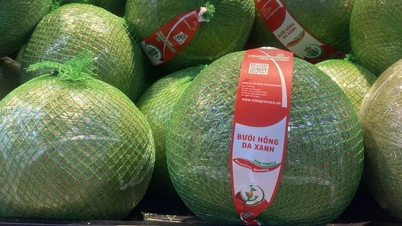





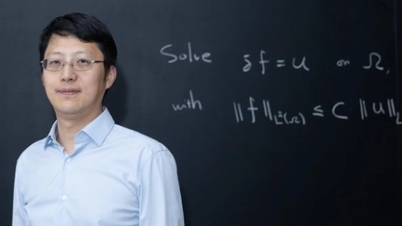




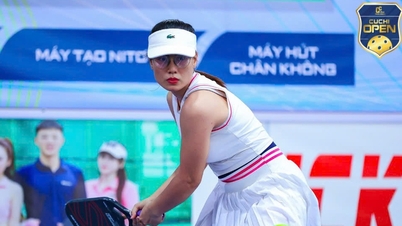













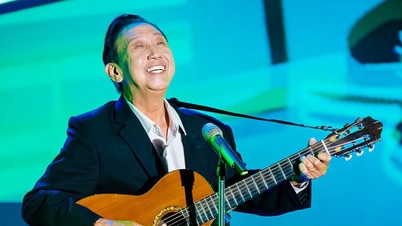



























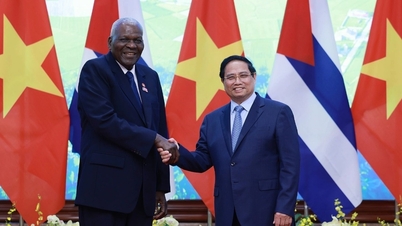



































Comment (0)